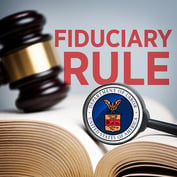Most advisors who have created their own mutual funds use an asset allocation approach, moving monies among different markets in order to enhance return and manage risk. Most of these advisor-managed products hold the bulk of their assets in exchange traded funds (ETFs), which have proven to be great tools for such a strategy.
ETFs offer some important advantages over mutual funds in the fund-of-funds context. High on the list of pros is that they have much lower management fees than mutual funds. They’re also not subject to the numerous types of hidden fees common to mutual funds, including front-end sales loads and ongoing distribution (Rule 12b-1) fees. A lack of redemption fees make tactical portfolio adjustments more cost-efficient.








 November 01, 2005 at 02:00 AM
November 01, 2005 at 02:00 AM










